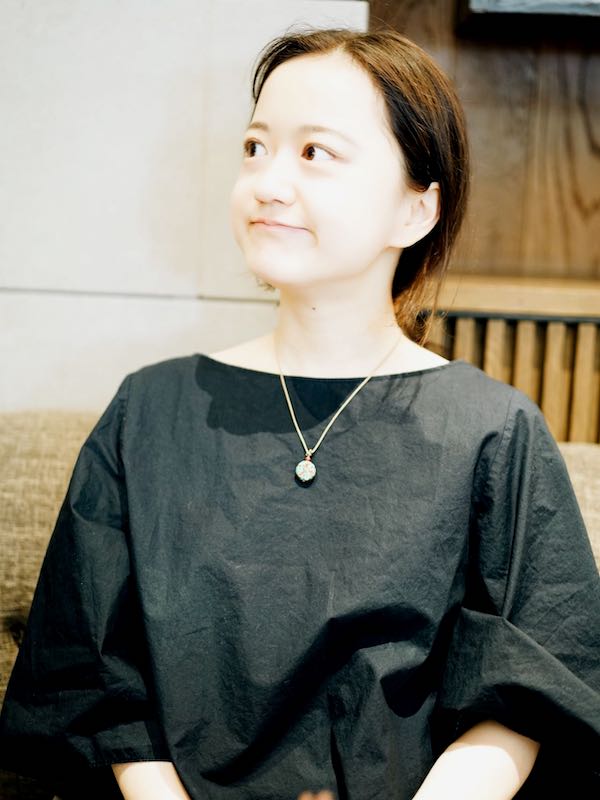Cancelling
In Cancelling, researcher, academic, theorist, and curator Sipei Lu takes up Liu Xie’s concern with “preversing the inner spirit and nourishing vitality” (玄神宜寶,素氣資養), and uses this as a starting point for reflecting on the challenges of curatorial practice in contemporary China and beyond.
Her essay asks about the “hard reality of creating art in a time of censorship”, and explores the limits of compromise, keenly aware that whatever our aspirations, art practice always unfolds within a specific social and political context.
⊹⊱✿⊰⊹
Cancelling
In May 2023, I organised a public screening of some experimental films made by five socially engaged artists from China. These artists initiated projects and created documentaries and essay films to engage with social issues, and to explore family history and personal struggles in relation to their own social contexts. The screening was in collaboration with a Shanghai private art museum, and we planned to show the films both online and in-person. However, the in-person screening was cancelled just before the scheduled date, as the government began to implement tightening regulations on all screening events in art institutions.
The sudden cancellation of the event took place after an unexpected incident in the month during which the screening was scheduled to happen. Stand-up comedian Li Haoshi, who performs under the stage-name House, was officially sanctioned, detained, and fined 15 million yuan. In the wake of this, not just comedy, but all kinds of art events found themselves subject to greater restrictions. For me, it was a stroke of bad luck. When we started to plan the screening — as the institution’s staff had checked the works beforehand, and there were no problems raised — I trusted there would be no censorship of the works, and I communicated this to the artists. But now, with the sudden alteration in regulations, the situation had changed, and we were only able to exhibit the films online.
For some artists, on-line screening was not a bad solution as the films still could reach a wide audience. Other artists saw online screening as a compromise, saying that image quality would be poor, and it would be difficult for audiences to watch lengthy films via tablets or mobile phones. After some discussion, we went ahead with the online screening, but shortened the duration of the online exhibition.
It soon became apparent that the objections to screening online were not just about the image quality or the experience of viewers. They also related to the different expectations participants had from the very outset of the project. Some of the artists, at the beginning, had contributed their work while suspending any concerns about potential censorship — even though they were aware that this was something that was inescapable in the landscape of contemporary Chinese art. When, inevitably, censorship did occur, they found it difficult to take. As a result, the artists began to question our judgement in our management of the project.
It took time to rebuild trust. I came to see how the artists' anger was a way of dealing with the hard reality of creating art in a time of censorship. It is a matter of what Liu Xie calls the art of “preserving inner spirit and nourishing native vitality” (玄神宜寶,素氣資養). Running art events, despite what some may think, is not about acting in an extreme way to attract attention. It is about making something happen at the right time, for right people, so that together we can make an impact. And so, when the recriminations and justifications died down, I just wanted to mourn together with the artists, to find ways of caring for each other’s long-term emotional suffering.
⊹⊱✿⊰⊹
At the same time, I still feel an uneasiness, as if I was somehow at fault. As human beings and as artists, we have to navigate between achieving results, and safeguarding our inner spirit and native vitality by not making compromises. This is a challenge I constantly face. I wonder: have I got used to compromising too much in the name of ‘achieving something’? As somebody who works in a university and its museum, I understand the pressures faced by art institutions, and the difficulties of decision-making. Often, we find ourselves having to come up with creative strategies to work within the constraints, balancing what is possible with the safeguarding of spirit and vitality. I do not give up easily, and I am always keen to advocate for artists’ ideas. But I am pessimistic about the possibilities for genuinely creative art within institutions. And perhaps that is the thing I find hardest from this whole experience.
Regarding this specific screening, some questions remain for me: did I respect the artworks enough? If so, should I have come to the decision in advance that the on-line viewing experience was not good enough, and cancelled the whole project? Did I think enough about what cancellation might mean to the artists? Should I have thought more carefully about the planning of the in-person screening?
These tentative questions serve as a reminder: I need to take more care in relation to artworks, to artists, and to viewers, to try and worry less, and to give up on trying to find solutions for everyone.
Because I, too, need to preserve my inner spirit and to nourish my native vitality.
⊹⊱✿⊰⊹
取消
译者:张煜航
二零二三年五月,我组织了一次实验影像的展映活动。展映影片都来自于做社会参与式艺术的五位艺术家。他们以不同的艺术项目、纪录片或者论文电影来探讨和介入社会问题,挖掘不同社会背景的家族史与个体故事。这次展映是我们同上海的一家私人美术馆合作的,线上线下同步进行。然而,由于政府部门开始对艺术机构的活动实施更严格的监管,线下展映在要办的几天前被迫取消。
线下活动被突然取消和五月发生的另一件事儿有关。脱口秀演员‘House’因某场演出遭到审查,其本人遭到拘留,而其所在的演出公司被处以1500万人民币的罚款。这件事儿一出,不只是脱口秀,所有文化艺术活动都遭到了严格的限制。这真的是飞来横祸。一开始计划这个活动的时候——美术馆的工作人员已经提前看过作品,并表示没什么问题——我相信这些作品应该都不会被审查,并且也和参展艺术家保证了这一点。不过现在,监管风向的突然改变把一切都打乱了,现在我们也只能做线上展映了。
对于参与展映的其中一些艺术家来说,线上展映并不是一个坏的解决方案,观众总归是能看到作品。但有的艺术家觉得线上展映是一种妥协,觉得线上放片子,影像的清晰度会很差,而且观众用手机或者笔记本看几个大长电影也是挺费劲儿的。经过讨论之后,我们决定还是继续线上展映的计划,但将展映的周期缩短。
归根结底,艺术家对于线上放映的意见其实不止于图像质量和观众体验。我们从这个项目一开始就有着不同的期待和设想,而这些把事情搞的更复杂了。其中几位艺术家虽然打从一开始同意放片子的时候就很担心会节外生枝,但决定搁置判断,试它一试。但是当问题真的找上门的时候,大家还是会觉得难以接受。结果就是,艺术家们开始质疑我们整个项目的管理和对情况的判断把握。
信任的重建需要时间。我也能感受到,艺术家的不满也不都是冲着我们,而是冲着审查去的,这或许是他们面对如此艰难的创作环境时的 ‘‘玄神宜寶,素氣資養’‘。确实,办活动并不是像很多人想的那样,要追求多少曝光度和关注度。最要紧的是,一个活动能在合适的时机,触及合适的人群,如以一来方能其利断金。面对现状,我也并不想辩解了,只想和艺术家们一起哀悼这一切,这或许是长期痛苦中关照彼此的一种方法。
⊹⊱✿⊰⊹
与此同时,我依然感到很不安,好像千错万错都是我的错。作为艺术从业者,或者说,不管做什么,我们都不得不在取得成果,与‘‘玄神宜寶,素氣資養’‘之间保持平衡。而这种保持平衡的努力或许并不意味着必须做出让步与妥协。这是一个需要时刻面对的挑战。扪心自问,我是不是已经为了要‘做成这个,做到那个’而妥协了太多?作为在大学及其附属的美术馆里工作的人,我明白艺术机构所面临的压力,也知道在这种情况下,任何决定都是艰难的。很多时候,为了实现某个项目,同时达成‘‘玄神宜寶,素氣資養’‘的追求,需要某种创造性的策略。我没有轻易放弃过,并且会永远选择支持艺术家。与此同时,我觉得在当前的艺术机构环境中要想达成真诚且拥有一致性的艺术创造,是非常困难的一件事。或许这种不抱希望的态度才是在这件事中让我觉得最难受的。
回到这次展映活动本身,我仍旧在不停地问自己:我是否有足够尊重艺术作品?如果有的话,出于观看体验的考虑,我是否不应该考虑在线放映?我是否充分考虑了项目被取消对艺术家意味着什么?进一步说,我是否应该更仔细地考虑现场展映的可能性而不是匆匆上马一个未经充分认可的替代物?
这些事后的自我怀疑都提醒了我:我需要更加小心地对待艺术作品、艺术家和观众,试着减少担忧,并放弃“解决问题”、皆大欢喜的想法。
因为,我自己,同样需要‘‘玄神宜寶,素氣資養’‘。
